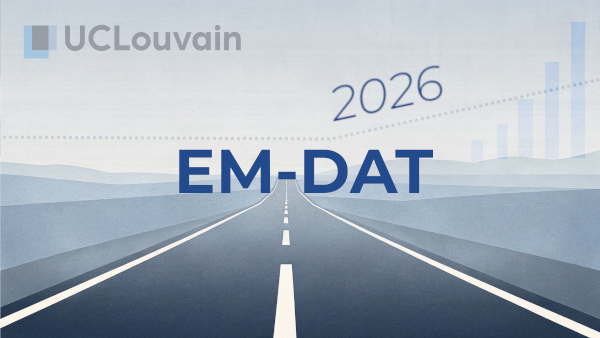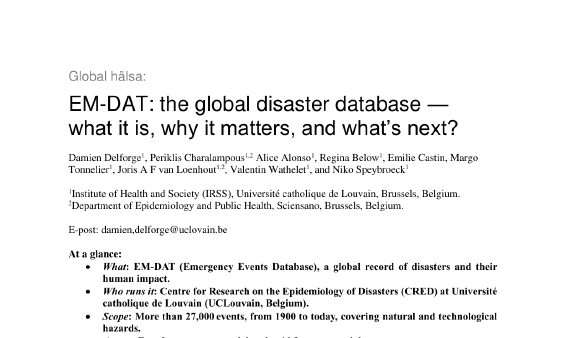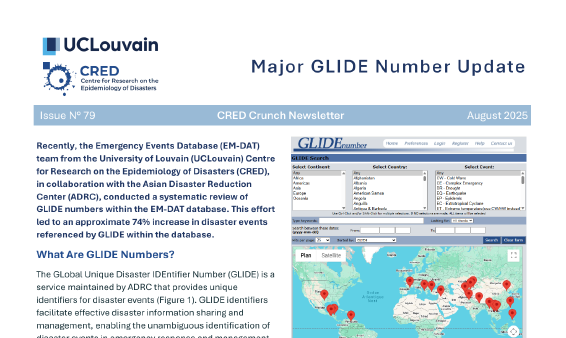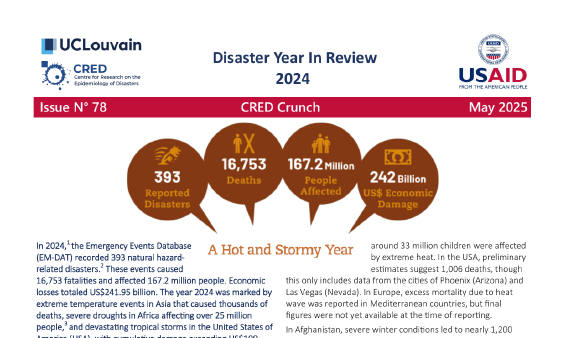EM-DAT Overview
More than 27,000 disaster records
EM-DAT defines disasters as situations or events which overwhelm local capacity, necessitating a request for external assistance at the national or international level. Disasters are unforeseen and often sudden events that cause significant damage, destruction, and human suffering.
The main objective of the database is to serve the purposes of humanitarian action at national and international levels. The initiative aims to rationalize decision-making for disaster preparedness and disaster risk reduction strategies, as well as provide an objective base for vulnerability assessment and priority setting.
Inclusion criteria
EM-DAT focuses on major disasters
EM-DAT globally records at the country level human and economic losses for disasters with at least one of the following criteria:
- 10 fatalities;
- 100 affected people;
- a declaration of state of emergency;
- a call for international assistance.
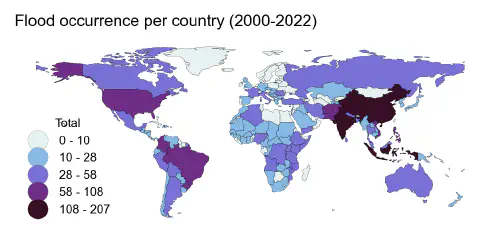
Disaster Classification
EM-DAT adopts a hierarchical classification
The database classifies disasters into two groups of hazards: natural and technological. The natural group is further classified up to four additional levels following the 2014 IRDR Peril Classification and Hazard Glossary. The technological group is less detailed and comprises three main types: transport, industrial, and miscellaneous accidents.
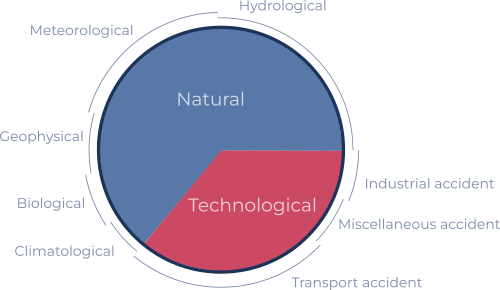
EM-DAT in numbers
About 2/3 of disasters in EM-DAT are related to natural hazards
About us
Behind EM-DAT
A long-term expertise
The CRED is now part of the Institute of Health and Society attached to the University of Louvain (UCLouvain). For more than 25 years, the EM-DAT database and project have been primarily sponsored by the United States Agency for International Development (USAID).
